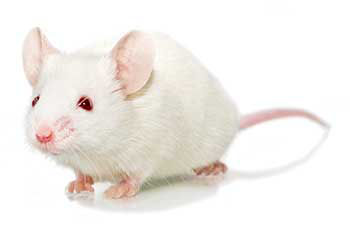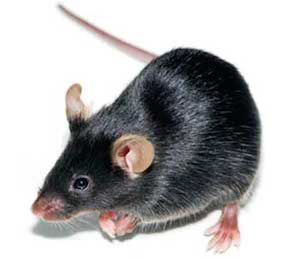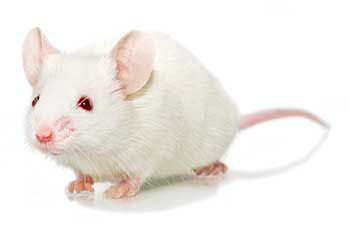IBD Portfolio
Inflammatory bowel disease (IBD) encompasses colitis and Crohn’s disease and impacts millions worldwide. Increasing prevalence and inadequate treatment options highlight the need for translatable models to advance preclinical research into the mechanisms driving IBD and to develop new therapeutics. Taconic Biosciences offers access to three major classes of IBD mouse models, sold with full use rights for drug discovery and development. As the in vivo microbiome leader, Taconic offers the most options for investigating the microbiome as it relates to IBD.
Browse our catalog of readily available models for your next IBD study, explore our newly launched microbiome product (WildR), or discuss your project needs with a scientist. We also have a range of resources to learn more about exciting advances in IBD research.
Mouse Models for the study of IBD
- Chemically Induced Colitis
- Adoptive Transfer Colitis
- Spontanous Colitis
- Microbiome and IBD
Strains for Chemically Induced Colitis
Chemically induced colitis models include a wide array of models spanning inbred strains, such as the B6 or BALB/c mouse, genetically engineered models, and humanized immune system mice. Typically, colitis is induced using dextran sodium sulfate, trinitrobenzene sulfonic acid, or dinitrobenzene sulfonic acid. Taconic scientists are available to discuss which model best suits your study needs.
Standard inbred strains
Relevant GEM lines
Humanized immune system mice
Paired Strains for Adoptive Transfer Colitis
In the adoptive transfer model of colitis, naïve T cells are harvested from a donor mouse and injected into an immunodeficient mouse to cause colitis. Various donor/recipient pairs may be used in this model, leading to differing severity and disease characteristics.
Paired strains (donor / recipient)
- BALB/c (BALB or BALJBO) and C.B-17 scid (CB17SC)
- BALB/c (BALB or BALJBO) and Rag2 knockout (601)
- C57BL/6 (B6 or B6JBOM) and Rag2 knockout (RAGN12)
- Example data package for B6/RAGN12 from Bolder BioPath and an anonymous pharmaceutical company.
Note that donor T cells may be sourced from relevant GEM lines rather than wild type inbred donors and used with immunodeficient recipients on the same background.
The microbiological status of recipients may affect performance in this model. Murine Pathogen Free (MPF™) health standard recipients, such as model RAGN12 may be preferred for some applications. Custom microbial association is available from Taconic for all recipients to assist in optimizing experimental protocols.
Genetically Engineered Mouse Models of Spontaneous Colitis
Colitis occurs spontaneously due to gene knockout and response to the microbiome:
- Mdr1a knockout (MDR1A) - available exclusively from Taconic
- Il10 knockout on B6 background (16006) - available for drug discovery under a simple label license
- Il10 knockout on BALB/c background (15660) - available for drug discovery under a simple label license
Mdr1a mice are a model for disrupted gut barrier function leading to spontaneous inflammation. Under conventional conditions, Mdr1a knockouts will typically develop inflammation by ~20 weeks of age. Association with select microbial agents may accelerate disease progression. Please inquire about Taconic custom microbial association services.
Il10 knockout mice develop spontaneous colitis due to dysregulated immune responses to endogenous gut microbiota. Taconic's Il10 knockouts are available at conventional (Opportunist Free) and Germ Free health standards. Association with select microbial agents may accelerate disease progression. Please inquire about Taconic custom microbial association services.
Microbiome and IBD
The influence of the microbiome on IBD is well-documented. Only Taconic can offer a full range of health standard options to facilitate microbiome research, including germ-free mice.
- Murine Pathogen Free (MPF™) health standard is preferred for most IBD studies
- Opportunist Free (OF™) standard is more restrictive and may be required when working with immunodeficient models such as C.B-17 scid for adoptive transfer colitis models or with human immune-system engrafted mice
- Germ-free mice are devoid of a microbiome and are critical tools for study of microbiome effects. Taconic offers standard strains and GEMs as germ-free and can provide germ-free derivations for other strains as well as fecal microbiota transplantation services in germ-free mice.
Custom Solutions for IBD Research
Taconic Biosciences' globally-recognized scientific project managers support your custom model design project from design to delivery. Each custom model design project develops along an agile framework, letting you reassess and retarget your model fluidly as new data becomes available. You can pause or postpone projects at any time, or even "back up" project milestones via cryopreservation.
Model Generation Solutions & Breeding Services
- Model Acquisition
- Transition Mutant to Model
- Scaled Breeding
- Specialized Services
- Distribution
Colony Management Solutions
- Extensive Health Standard Options
- True Gnotobiotic Profiles
- Genetic Monitoring Programs
- Scientific Leadership & Success Team
- Custom Solutions for Every Partner
Featured IBD Resources
Get In Touch
Book a complimentary consultation or get support for an existing order
If you need immediate assistance, please contact Customer Service:
Taconic Corporate Offices
Email: info@taconic.com
Phone: +1 (518) 697-3900
273 Hover Ave., Germantown, NY 12526
North American Customer Service
Email: info@taconic.com
Phone:
+1 (518) 697-3915
Toll-free:
+1 (888) 822-6642
Hours:
(Monday - Friday): 7 a.m. - 6 p.m. ET
European Customer Service
Email: info@taconic.com
Phone (Europe and Denmark):
+45 70 23 04 05
Phone (Germany):
+49 214 50 68 023
Hours: (Monday - Friday):
7 a.m. - 5 p.m. CET















.jpg)

.jpg)
.jpg)
.jpg)
.jpg)





.jpg)


.jpg)
.jpg)

.jpg)


.jpg)





.jpg)

.jpg)


















